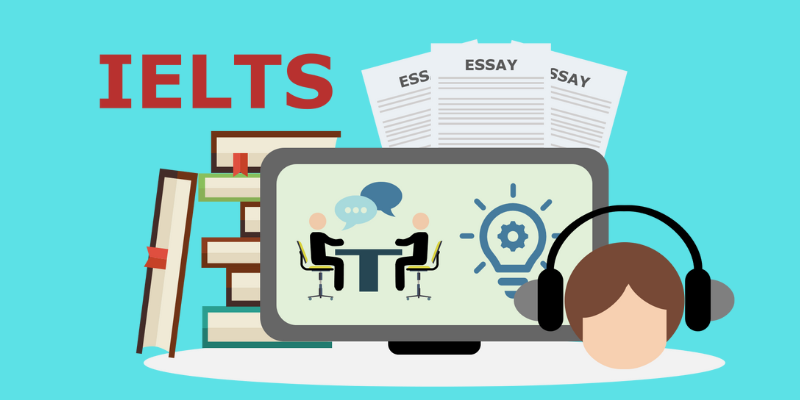Achieving a high score on the IELTS (International English Language Testing System) exam can open doors to numerous opportunities, whether for higher education, career advancement, or immigration purposes. The IELTS speaking test evaluates your ability to communicate effectively in English, and excelling in this section requires more than just understanding grammar and vocabulary. It involves mastering various spoken English practices that can significantly boost your performance. This blog explores the Spoken English Practices for Achieving a High IELTS Score. Consider enrolling in IELTS Training in Marathahalli to gain additional support and guidance in your preparation.
1. Recognize the Structure of the IELTS Speaking Exam
The first step in preparing for the IELTS speaking test is to familiarize yourself with its format. The speaking exam consists of three sections:
- Part 1: Introduction and Interview – You will answer questions about yourself, your home, your family, and other familiar topics.
- Part 2: Long Turn – You will receive a task card with a topic and have one minute to prepare before speaking for up to two minutes.
- Part 3: Discussion – You will discuss abstract ideas and issues related to the topic from Part 2 with the examiner.
2. Practice Speaking Regularly
Regular practice is crucial for improving spoken English. Set aside time each day to practice speaking on various topics. The following techniques are available to you:
- Speaking with Native Speakers: Interact with native English speakers, either in person or via language exchange networks.
- Language Meetups and Conversation Clubs: Join local or online English-speaking groups to practice speaking with others.
- Record Yourself: Record your responses to IELTS practice questions and listen to them to identify areas for improvement. Attending IELTS Classes Near Me can provide additional feedback and support to refine your skills further.
3. Expand Your Vocabulary
A rich vocabulary allows you to express your thoughts more precisely and effectively. Enhance your vocabulary by:
- Reading Widely: Read newspapers, magazines, and books in English to expose yourself to a range of vocabulary and phrases.
- Using Vocabulary Lists: Create and review lists of common IELTS topics and phrases.
- Practicing Synonyms: Learn synonyms for common words to avoid repetition and add variety to your speech.
4. Improve Your Pronunciation
Clear pronunciation is essential for effective communication. Focus on:
- Listening to Native Speakers: Pay attention to the pronunciation of native speakers through podcasts, movies, and audiobooks.
- Phonetic Practice: Use online resources and apps to practice phonetics and improve your accent.
- Stress and Intonation: Work on stress and intonation patterns to make your speech more natural and engaging.
5. Develop Fluency and Coherence
Fluency and coherence are critical criteria in the IELTS speaking test. To improve these aspects:
- Practice Speaking Smoothly: Focus on speaking without hesitation and using linking words to connect your ideas.
- Structure Your Responses: Organize your answers with a clear beginning, middle, and end. Use phrases like “Firstly,” “Additionally,” and “In conclusion” to structure your speech.
- Avoid Overthinking: Try not to overthink your responses. Speak naturally and let your thoughts flow. Enrolling in Spoken English Classes in Marathahalli can also help you develop a more natural speaking style.
6. Use IELTS Practice Tests
Taking practice tests is an effective way to simulate the actual test experience and assess your progress. Use the following resources:
- Official IELTS Practice Materials: Use practice books and online resources provided by the British Council or IDP.
- Mock Tests: Take full-length mock tests under timed conditions to build your confidence and improve your performance.
7. Seek Feedback and Guidance
Feedback from teachers, tutors, or language partners can help you identify strengths and areas for improvement. Consider:
- Enrolling in a Preparation Course: Opt for IELTS Coaching in Bangalore, such as those offered by FITA Academy, which provides expert guidance and tailored feedback.
- Receiving Constructive Criticism: Share your recorded responses with others and ask for specific feedback on aspects like pronunciation, fluency, and coherence.
8. Stay Calm and Confident
Confidence plays a significant role in performing well on the IELTS speaking test. To manage anxiety and stay calm:
- Practice Relaxation Techniques: Use deep breathing exercises or mindfulness techniques to calm your nerves before the test.
- Visualize Success: Imagine yourself performing well in the test to boost your confidence and reduce anxiety.
- Be Prepared: Knowing that you have practiced extensively will help you approach the test with a positive mindset.
Achieving a high IELTS score requires a combination of effective spoken English practices and strategic preparation. By understanding the test format, practicing regularly, expanding your vocabulary, improving your pronunciation, and developing fluency and coherence, you can significantly enhance your performance. Utilizing IELTS practice tests and seeking feedback will further refine your skills and boost your confidence. Enrolling in a Speaking English Course Near Me can provide targeted practice and guidance to help you reach your goals. With dedication and the right approach, you can achieve the high IELTS score you need to reach your goals.
Also Check: Ways to Boost Your Confidence for IELTS Speaking
